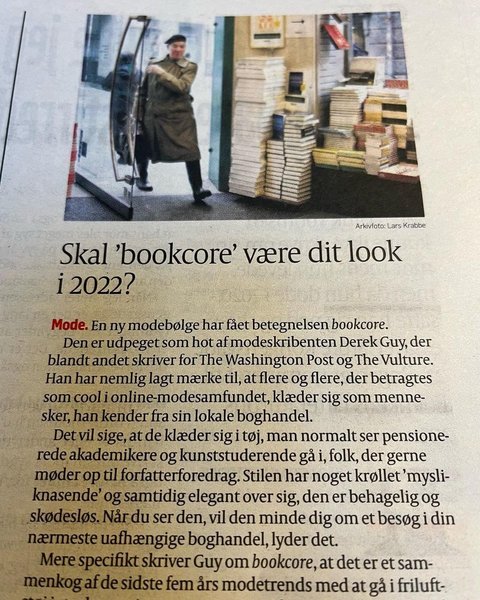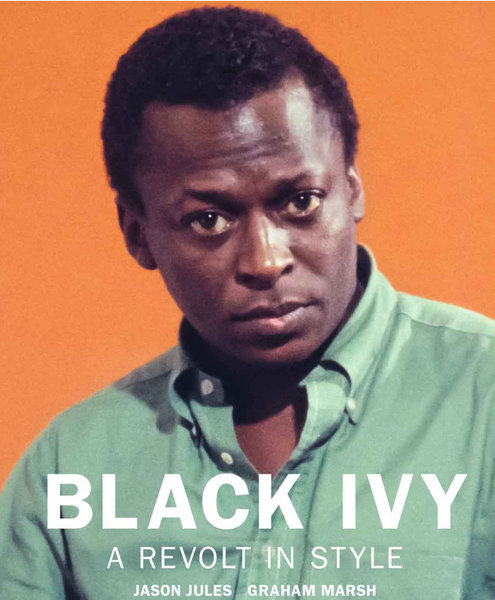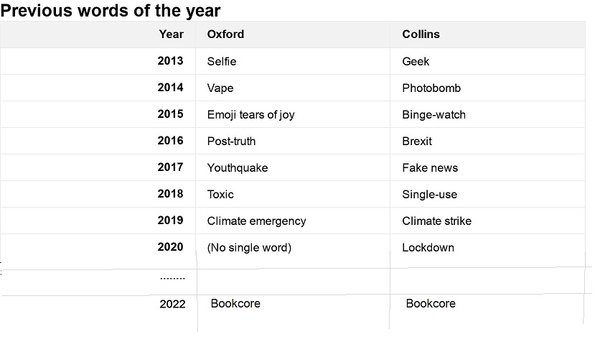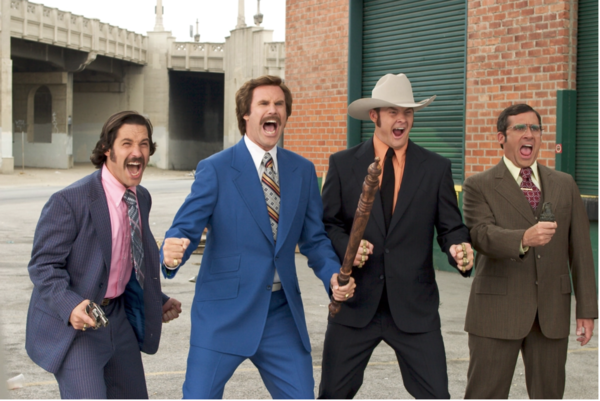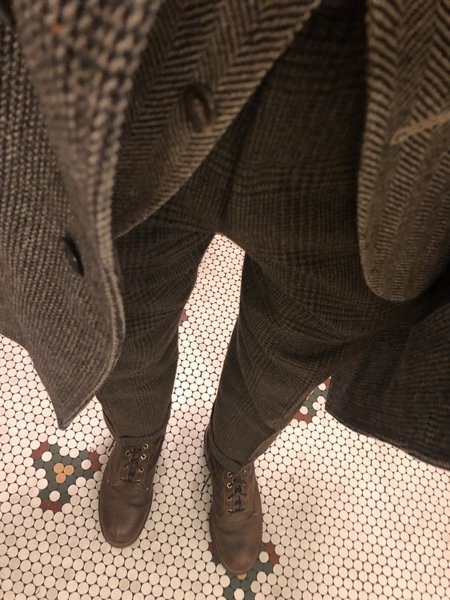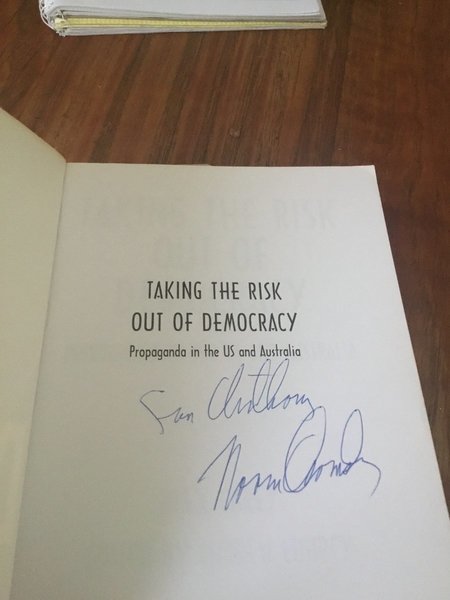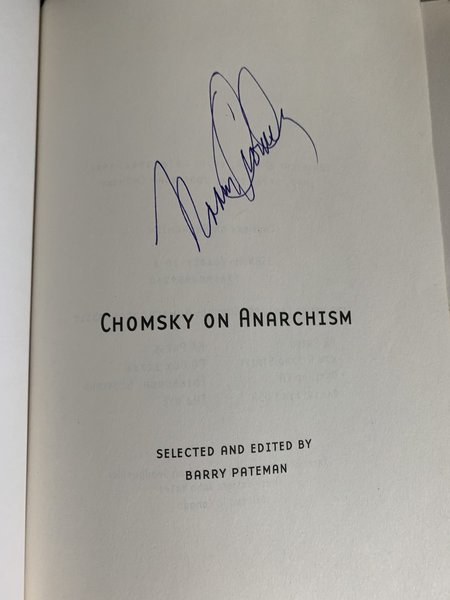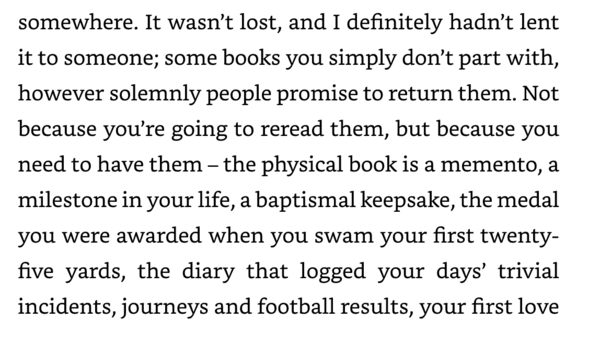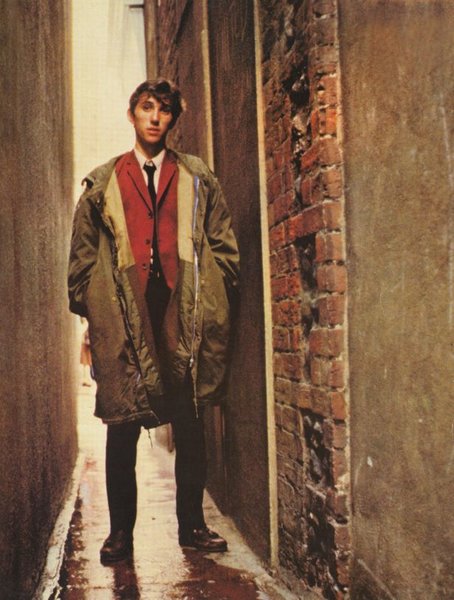Support the forum
Navigation
-
- Men's Style
- Classic Menswear
- Streetwear and Denim
- Preorders, Group Made-to-order, trunk shows, and o
- Menswear Advice
- Former Affiliate Vendor Threads; a Locked Forum.
- Career and job listings in fashion, mens clothing,
-
- American Trench
- AMIDÉ HADELIN
- Archibald London
- The Armoury
- Arterton
- Besnard
- Canoe Club
- Capra Leather
- Carmina
- Cavour
- Crush Store
- De Bonne Facture
- Drinkwater's Cambridge
- Drop93
- eHABERDASHER
- Enzo Custom
- Epaulet
- Exquisite Trimmings
- Fils Unique
- Gentlemen's Footwear
- Giin
- Grant Stone
- House of Huntington
- IsuiT
- John Elliott
- Jonathan Abel
- Kent Wang
- Kirby Allison
- Larimars Clothing
- Lazy Sun
- LuxeSwap
- Luxire Custom Clothing
- Nicks Boots
- No Man Walks Alone
- Once a Day
- Passus shoes
- Proper Cloth
- SARTORIALE
- SEH Kelly
- Self Edge
- Shop the Finest
- Skoaktiebolaget
- Spier and MacKay
- Standard and Strange
- Bespoke Shoemaker Szuba
- Taylor Stitch
- TLB Mallorca
- UNI/FORM LA
- Vanda Fine Clothing
- Von Amper
- Wrong Weather
- Yeossal
- Zam Barrett
Install the app
More options
-
Hi, I am the owner and main administrator of Styleforum. If you find the forum useful and fun, please help support it by buying through the posted links on the forum. Our main, very popular sales thread, where the latest and best sales are listed, are posted HERE
Purchases made through some of our links earns a commission for the forum and allows us to do the work of maintaining and improving it. Finally, thanks for being a part of this community. We realize that there are many choices today on the internet, and we have all of you to thank for making Styleforum the foremost destination for discussions of menswear. -
This site contains affiliate links for which Styleforum may be compensated.
-
STYLE. COMMUNITY. GREAT CLOTHING.
Bored of counting likes on social networks? At Styleforum, you’ll find rousing discussions that go beyond strings of emojis.
Click Here to join Styleforum's thousands of style enthusiasts today!
Styleforum is supported in part by commission earning affiliate links sitewide. Please support us by using them. You may learn more here.
You are using an out of date browser. It may not display this or other websites correctly.
You should upgrade or use an alternative browser.
You should upgrade or use an alternative browser.
Let's Talk About Bookcore
- Thread starter Daniel Hakimi
- Start date
- Watchers 84
DoubleDouble
Senior Member
- Joined
- Nov 24, 2017
- Messages
- 478
- Reaction score
- 578
Removed. I'm not an English native speaker and that's not what I wanted to get across.I'm sorry, did you just say that fairness is genetic?
- Joined
- Apr 10, 2011
- Messages
- 27,320
- Reaction score
- 69,987
I'm sorry, did you just say that fairness is genetic?
I think he's saying that supporting non-normative ideas about aesthetics is a much fairer way to approach style, as some people aren't born to look like models. A lot of guys buy classic clothing because they see photos of Italian industrialists and whatnot. But when you see photos of them, they look ... pretty average. The original appeal for those clothes is sometimes not about the clothes, but the lifestyles and physical features of the people wearing them.
Western Tycoon
New Member
- Joined
- Sep 12, 2021
- Messages
- 2
- Reaction score
- 9
Went on the American Literature job market in 2004, wearing a (thrifted) Armani suit, a Charvet tie from Barneys I couldn't really afford at the time, and clearly ignoring this observation from Stanley Fish:
On a day in the mid-seventies--it may have varied in different parts of the country and at different universities--American academics stopped buying ugly Volkswagens and started buying ugly Volvos, with a few nonconformists opting for ugly Saabs. Now on the surface there would seem to be an obvious explanation for this shift in preference: on the one hand, graduate student stipends gave way to the more generous salaries of assistant and associate professorships; on the other, growing families required more than a rudimentary back seat. But the question remains, why Volvos? Why not Oldsmobiles, or Chryslers, or Mercury station wagons? The answer, I think, is that Volvos provided a solution to a new dilemma facing many academics--how to enjoy the benefits of increasing affluence while simultaneously maintaining the proper attitude of disdain toward the goods that affluence brings. In the context of this dilemma, the ugliness of the Volvo becomes its most attractive feature, for it allows those who own one to plead innocent to the charge of really wanting it.
At one of my conference interviews, someone addressed me as "Dr. GQ." Didn't get that job, but got another one, and I'm now a full professor. But I still probably dress too well to be taken very seriously as an academic.
On a day in the mid-seventies--it may have varied in different parts of the country and at different universities--American academics stopped buying ugly Volkswagens and started buying ugly Volvos, with a few nonconformists opting for ugly Saabs. Now on the surface there would seem to be an obvious explanation for this shift in preference: on the one hand, graduate student stipends gave way to the more generous salaries of assistant and associate professorships; on the other, growing families required more than a rudimentary back seat. But the question remains, why Volvos? Why not Oldsmobiles, or Chryslers, or Mercury station wagons? The answer, I think, is that Volvos provided a solution to a new dilemma facing many academics--how to enjoy the benefits of increasing affluence while simultaneously maintaining the proper attitude of disdain toward the goods that affluence brings. In the context of this dilemma, the ugliness of the Volvo becomes its most attractive feature, for it allows those who own one to plead innocent to the charge of really wanting it.
At one of my conference interviews, someone addressed me as "Dr. GQ." Didn't get that job, but got another one, and I'm now a full professor. But I still probably dress too well to be taken very seriously as an academic.
Last edited:
- Joined
- Apr 10, 2011
- Messages
- 27,320
- Reaction score
- 69,987
Went on the American Literature job market in 2004, wearing a (thrifted) Armani suit, a Charvet tie from Barneys I couldn't really afford at the time, and clearly ignoring this observation from Stanley Fish:
On a day in the mid-seventies--it may have varied in different parts of the country and at different universities--American academics stopped buying ugly Volkswagens and started buying ugly Volvos, with a few nonconformists opting for ugly Saabs. Now on the surface there would seem to be an obvious explanation for this shift in preference: on the one hand, graduate student stipends gave way to the more generous salaries of assistant and associate professorships; on the other, growing families required more than a rudimentary back seat. But the question remains, why Volvos? Why not Oldsmobiles, or Chryslers, or Mercury station wagons? The answer, I think, is that Volvos provided a solution to a new dilemma facing many academics--how to enjoy the benefits of increasing affluence while simultaneously maintaining the proper attitude of disdain toward the goods that affluence brings. In the context of this dilemma, the ugliness of the Volvo becomes its most attractive feature, for it allows those who own one to plead innocent to the charge of really wanting it.
At one of my conference interviews, someone addressed me as "Dr. GQ." Didn't get that job, but got another one, and I'm now a full professor. But I still dress too well to be taken very seriously as an academic.
Your story reminds me of a friend of mine, who teaches sociology at one of California's universities. We both grew up in middle-class families but pursued slightly off-beat interests and careers. Along with teaching sociology, he also works as a music critic.
We were having dinner once and he said that he felt many people in our generation rejected traditional lifestyles or careers. As he put it, pursuing "cultural capital" instead of "financial capital." And so, they consume things that signal this countercultural status.
I've mentioned this in other threads, but David Marx, author of Ametora, has a book coming out this summer about this topic. Basically how the pursuit of social status pushes culture. The idea isn't novel, but I suspect he will write about the subject in a way that engages with a lot of new readers, and use examples that might interest menswear enthusiasts.
One more story: when I first talked about bookcore with someone, it was with Peter (UrbanComposition on this forum) and his wife, while we were having dinner. After dinner, we took a walk around the neighborhood, where this idea spilled over into a discussion about poptimism (related to this idea of liking things that aren't mainstream, except now people revel in the mainstream). But even in this moment of poptimism, there are "fashionable" ways to like pop music and "unfashionable" ways. You can like things that have been cosigned by certain "cool" communities (often LGBTQ+ communities). So it's ok to like Britney and Rihanna. But it would be very difficult to like Insane Clown Posse. Even with poptimism, there are certain ways to "do it" to signal your countercultural status.
barutanseijin
Senior Member
- Joined
- Feb 17, 2020
- Messages
- 811
- Reaction score
- 2,367
If I can be forgiven the immodesty of citing myself here, I think that the discomfort it seems to produce in the CM community might be one of the most interesting parts about it. Because, as the photos of “CM” vs “bookcore” comparisons show, a lot of bookcore (although not the sum of it) is just CM that shows its age or contemporary ill-fitting, isn’t it? Whereas CM is all about asserting that a certain kind of fashion is “classic“ and immune to aging? It’s not so much that bookcore is different, then, but that it might be a bit too close for comfort? A bit debased or doing it wrong?
CM: My shoes are still shiny, my lines are still clean, this style is evergreen.
Bookcore: My shoulder has dropped, my seams are frayed, the earth is dying.
The approximate fits, worn-in look, & softened lines would mesh with the bookcore crowd being more concerned with cultural consumption than material consumption, something one would expect given their intellectual leanings.
A fall in disposable income might also contribute, e.g., someone who was downsized in 2008 or retired might still be wearing outfits purchased way back when. Or, people in the outer reaches of the intelligentsia (adjuncts, schoolteachers etc.) might strive to wear things as long as possible or wear thrifted clothes with approximate, good enuf fits.
yorkshire pud
Distinguished Member
- Joined
- Apr 15, 2016
- Messages
- 1,563
- Reaction score
- 921
Is this "Bookcore"??
Last edited:
yorkshire pud
Distinguished Member
- Joined
- Apr 15, 2016
- Messages
- 1,563
- Reaction score
- 921
I'm not sure if this group realizes it, but most people don't buy a lot of new clothes.
Yep, They don't tend to buy a lot of books either ?
zenosparadox
Distinguished Member
- Joined
- Nov 16, 2006
- Messages
- 1,240
- Reaction score
- 1,712
This is factually incorrect. The average American buys 60 new garments each year, which is more than twice the number from 20 years ago.I'm not sure if this group realizes it, but most people don't buy a lot of new clothes.
That’s more than I buy, although I probably spend more than average.
FlyingMonkey
Distinguished Member
- Joined
- Sep 5, 2011
- Messages
- 7,131
- Reaction score
- 11,036
Is this "Bookcore"??
Well, The Smiths' aesthetic was very similar, so you might call them precursors. Certainly my friends at university who were into The Smiths, and the Pastels and other C86 bands (as they were known back then), all used to dress in this way, with big overcoats, and most of it thrifted.
Morissey himself was deliberately going for a 'James Dean as a queer book-lover' look.
- Joined
- Jul 13, 2012
- Messages
- 20,198
- Reaction score
- 33,394
Probably some John Hughes movies and other alt-Rock impacts at that time as well? I remember the big coats being a thing. Always drove store detectives nuts as they assumed we were all shoplifters.Well, The Smiths' aesthetic was very similar, so you might call them precursors. Certainly my friends at university who were into The Smiths, and the Pastels and other C86 bands (as they were known back then), all used to dress in this way, with big overcoats, and most of it thrifted.
Morissey himself was deliberately going for a 'James Dean as a queer book-lover' look.
FEATURED PRODUCTS
-
 LuxeSwap Auction - Vintage Antique United States Naval Navy Denim Deck Jacket
A piece for denim heads, vintage collectors, streetwear enthusiasts and menswear enthusiasts alike, this extremely rare early US Naval issued deck jacket in raw denim is not likely to ever show up at auction again anytime soon. A Haleys Comet of menswear items, offered at auction at a $9.99 starting bid with no reserve.
LuxeSwap Auction - Vintage Antique United States Naval Navy Denim Deck Jacket
A piece for denim heads, vintage collectors, streetwear enthusiasts and menswear enthusiasts alike, this extremely rare early US Naval issued deck jacket in raw denim is not likely to ever show up at auction again anytime soon. A Haleys Comet of menswear items, offered at auction at a $9.99 starting bid with no reserve.
-
 Nicks Boots - Wickett & Craig English Bridle Veg Tan Leather - $759
These boots are made from 6.5 oz Wickett & Craig English Bridle Leather. This tannery has been making leather the old fashioned way since 1867. Each side can take about six weeks to produce, making it a significantly longer production time than most leather on the market.
Nicks Boots - Wickett & Craig English Bridle Veg Tan Leather - $759
These boots are made from 6.5 oz Wickett & Craig English Bridle Leather. This tannery has been making leather the old fashioned way since 1867. Each side can take about six weeks to produce, making it a significantly longer production time than most leather on the market.
-
Besnard - Made to Order Trousers - $351 Design your ideal pair of trousers by selecting a fabric, deciding between single or double pleats, choosing a zip or button fly, and opting for side adjusters or belt loops.
Latest posts
- Replies
- 36,597
- Views
- 4,449,405
- Replies
- 3,858
- Views
- 969,276
- Replies
- 52,083
- Views
- 6,585,131
- Replies
- 73
- Views
- 11,168
Similar threads
- Replies
- 41
- Views
- 10,579
- Replies
- 30
- Views
- 2,955
Featured Sponsor
Forum Sponsors
- American Trench
- AMIDÉ HADELIN
- Archibald London
- The Armoury
- Arterton
- Besnard
- Canoe Club
- Capra Leather
- Carmina
- Cavour
- Crush Store
- De Bonne Facture
- Drinkwater's Cambridge
- Drop93
- eHABERDASHER
- Enzo Custom
- Epaulet
- Exquisite Trimmings
- Fils Unique
- Gentlemen's Footwear
- Giin
- Grant Stone
- House of Huntington
- IsuiT
- John Elliott
- Jonathan Abel
- Kent Wang
- Kirby Allison
- Larimars Clothing
- Lazy Sun
- LuxeSwap
- Luxire Custom Clothing
- Nicks Boots
- No Man Walks Alone
- Once a Day
- Passus shoes
- Proper Cloth
- SARTORIALE
- SEH Kelly
- Self Edge
- Shop the Finest
- Skoaktiebolaget
- Spier and MacKay
- Standard and Strange
- Bespoke Shoemaker Szuba
- Taylor Stitch
- TLB Mallorca
- UNI/FORM LA
- Vanda Fine Clothing
- Von Amper
- Wrong Weather
- Yeossal
- Zam Barrett
Members online
- Omega Male
- Asca1
- Abgrund
- grenache
- pcgsayers
- Cooly
- carlos20co
- LA Guy
- mrbig
- shopsecondhandvisvim
- robinacion
- monyongdora
- Lendo
- C_kimlin920
- Shanejosephxxx
- JayDee90
- Poshak Man
- goonerble
- edinatlanta
- Jr Mouse
- Achath
- spm1923
- modernize
- irbe
- jdemotion
- KevM
- admin
- sydneycider
- iluvatar
- TinyEli
- Thin White Duke
- F_e_r_o_x
- ValidusLA
- MGWS
- Redtop
- mossrockss
- Relovar
- Franky
- MeatFish
- JayDotz
- mozart
- krudsma
- s3lam
- vandelay74
- WBaker
- KaleidoscopicK
- zippyh
- Phinis
- tertbutyl
- dixonmanor
Total: 1,938 (members: 126, guests: 1,812)







